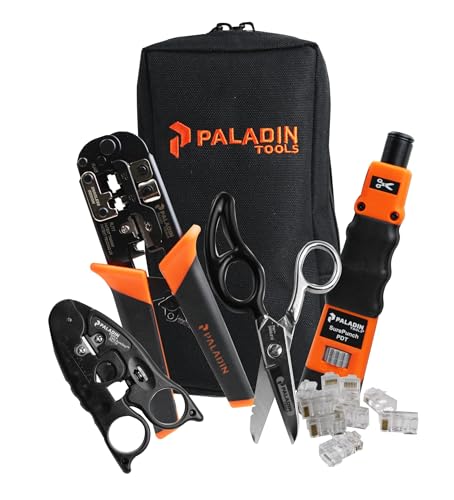Hi, I passed the FE April 2011 and plan to take the PE - Electrical - Power in April 2012. I've been out of school about 9 years and work as a project manager at a utility. I was a electronics engineer, not power. A few of my coworkers passed the PE studying only a month, but I will use the slow time this winter to study across 3-4 months. I bought the PPI Power exam study package and plan to use that as my only source to pass. It come with 500 power practice problems and 2 sample tests (one is the NCEES). I have a proposed study schedule I would like critiqued. Passing the FE last year should make it a lot easier since I don't need to review the math anymore, and I have a light overview on power.
Sections I want to totally ignore or lightly cover: Electronics, Basic Theory, Field Theory. (Electromag / DC circuits). I'm not sure these are really worth dumping time into since they don't have many workable problems and don't appear on the Exam specifications. So below is my schedule based on the Specs.
PE EE Power Exam Review Schedule - Zach
Week #1 - Dec19
1. Entry Paperwork
2. Calculator Workshop
3. Math Review
4. Circuit Theory
Week #2 - Dec26
Circuit Analysis
Analysis 11%
1. Three-phase circuit analysis
2. Symmetrical components
3. Per unit analysis
4. Phasor diagrams
5. RMS
Week #3 - Jan2
Power System Analysis
Devices and Power Electronic Circuits 9%
1. Battery characteristics and ratings
2. Power supplies
3. Relays, switches, and PLCs
4. Variable-speed drives
Week #4 - Jan9
Transformers
Electromagnetic Devices 7.5%
1. Transformers
2. Reactors
3. Testing
Week #5 - Jan16
Transmission Lines
System Analysis 12.5%
1. Voltage drop
2. Voltage regulation
3. Power factor correction and voltage support
4. Power quality
5. Fault current analysis
6. Grounding
7. Transformer connections
8. Transmission line models
Week #6 - Jan23
Transmission Lines
System Analysis... (Fault current analysis)
Week #7 - Jan30
Power System Performance 7.5%
1. Power flow
2. Load sharing: parallel generators or transformers
3. Power system stability
Week #8 - Feb6
Power System Protection 10%
1. Overcurrent protection
2. Protective relaying
3. Protective devices (e.g., fuses, breakers, reclosers)
4. Coordination
Week #9 - Feb13
Rotating Machines 12.5%
1. Synchronous machines
2. Induction machines
3. Generator/motor applications
4. Equivalent circuits
5. Speed-torque characteristics
6. Motor starting
Week #10 - Feb20
Rotating Machines...
Week #11 - Feb27
Measurement and Instrumentation 7.5%
1. Instrument transformers
2. Wattmeters
3. VOM metering
4. Insulation testing
5. Ground resistance testing
Week #12 - Mar5
Special Applications 10%
1. Lightning and surge protection
2. Reliability
3. Illumination engineering
4. Demand and energy management/calculations
5. Engineering economics
Week #13 - Mar12
Special Applications...
Week #14 - Mar19
Codes and Standards 12.5%
1. National Electrical Code (NEC)
2. National Electrical Safety Code (NESC)
3. Electric shock and burns
Week #15 - Mar26
-catch-up week
Week #16 - Apr2
-Review
-Sample Exams
Week #17 - Apr9
-Review
-Sample Exams
-April 13 = exam
//////////////
additional topics from coworker's power system books/notes
//////////////
per unit analysis
phase shift, transformers - auto and 3 winding
transmission lines - GMR, DEQ, power transferred
power flows
symmetrical components
fault analysis
protection - ct's, relay settings
Sections I want to totally ignore or lightly cover: Electronics, Basic Theory, Field Theory. (Electromag / DC circuits). I'm not sure these are really worth dumping time into since they don't have many workable problems and don't appear on the Exam specifications. So below is my schedule based on the Specs.
PE EE Power Exam Review Schedule - Zach
Week #1 - Dec19
1. Entry Paperwork
2. Calculator Workshop
3. Math Review
4. Circuit Theory
Week #2 - Dec26
Circuit Analysis
Analysis 11%
1. Three-phase circuit analysis
2. Symmetrical components
3. Per unit analysis
4. Phasor diagrams
5. RMS
Week #3 - Jan2
Power System Analysis
Devices and Power Electronic Circuits 9%
1. Battery characteristics and ratings
2. Power supplies
3. Relays, switches, and PLCs
4. Variable-speed drives
Week #4 - Jan9
Transformers
Electromagnetic Devices 7.5%
1. Transformers
2. Reactors
3. Testing
Week #5 - Jan16
Transmission Lines
System Analysis 12.5%
1. Voltage drop
2. Voltage regulation
3. Power factor correction and voltage support
4. Power quality
5. Fault current analysis
6. Grounding
7. Transformer connections
8. Transmission line models
Week #6 - Jan23
Transmission Lines
System Analysis... (Fault current analysis)
Week #7 - Jan30
Power System Performance 7.5%
1. Power flow
2. Load sharing: parallel generators or transformers
3. Power system stability
Week #8 - Feb6
Power System Protection 10%
1. Overcurrent protection
2. Protective relaying
3. Protective devices (e.g., fuses, breakers, reclosers)
4. Coordination
Week #9 - Feb13
Rotating Machines 12.5%
1. Synchronous machines
2. Induction machines
3. Generator/motor applications
4. Equivalent circuits
5. Speed-torque characteristics
6. Motor starting
Week #10 - Feb20
Rotating Machines...
Week #11 - Feb27
Measurement and Instrumentation 7.5%
1. Instrument transformers
2. Wattmeters
3. VOM metering
4. Insulation testing
5. Ground resistance testing
Week #12 - Mar5
Special Applications 10%
1. Lightning and surge protection
2. Reliability
3. Illumination engineering
4. Demand and energy management/calculations
5. Engineering economics
Week #13 - Mar12
Special Applications...
Week #14 - Mar19
Codes and Standards 12.5%
1. National Electrical Code (NEC)
2. National Electrical Safety Code (NESC)
3. Electric shock and burns
Week #15 - Mar26
-catch-up week
Week #16 - Apr2
-Review
-Sample Exams
Week #17 - Apr9
-Review
-Sample Exams
-April 13 = exam
//////////////
additional topics from coworker's power system books/notes
//////////////
per unit analysis
phase shift, transformers - auto and 3 winding
transmission lines - GMR, DEQ, power transferred
power flows
symmetrical components
fault analysis
protection - ct's, relay settings





















